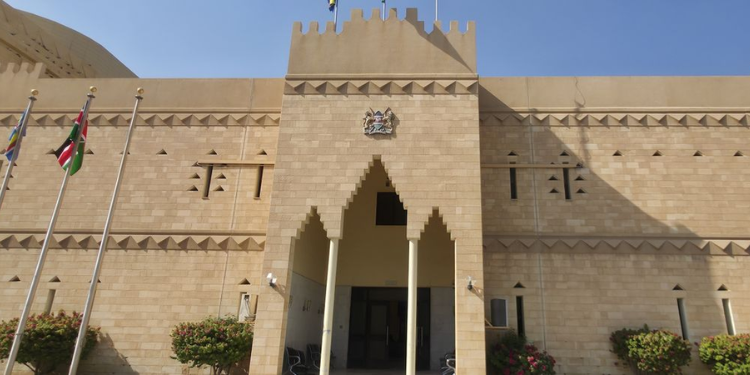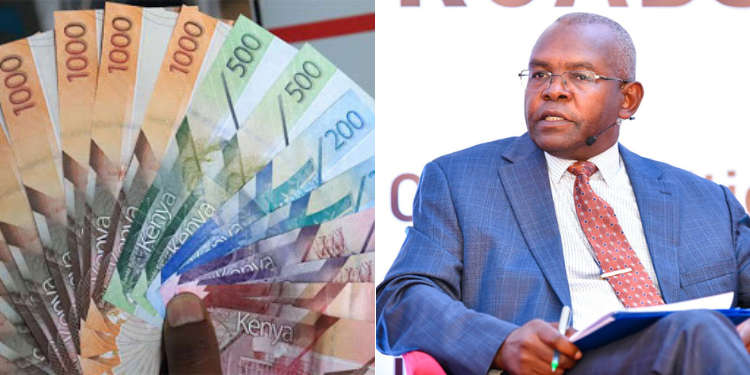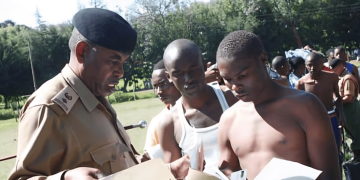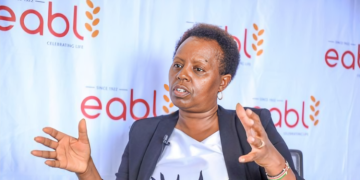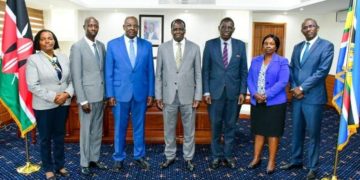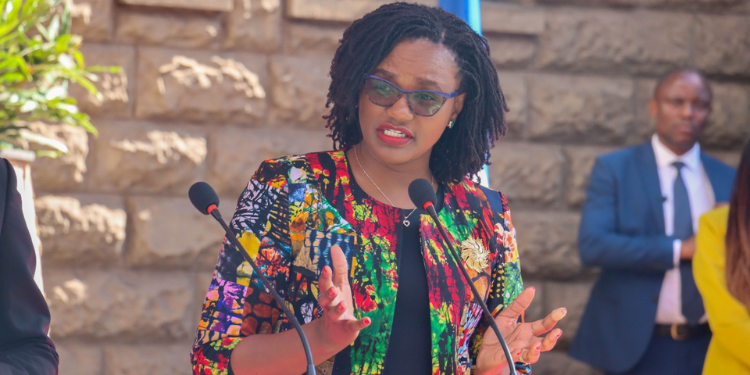Principal Secretary for the State Department for Diaspora Affairs, Roseline Kathure Njogu, has responded to alarming reports that hundreds of Kenyan mothers and their undocumented children remain stranded in the Kingdom of Saudi Arabia (KSA) in the streets of Riyadh and Jeddah.
A recent New York Times report revealed that some of the women and their children sleep outdoors or in informal shelters, with groups gathering near a gas station in Riyadh’s Manfooha district—rumoured to be a deportation point.
Some of the mothers said they are forced to tie their children to trees near gas stations while they search for odd jobs to survive.
In a statement on Saturday, November 15, PS Njogu said the government is aware of the concerns and outlined ongoing interventions.
Birth registration challenges for Kenyans in Saudi Arabia
The PS explained that although Kenyan law provides a clear framework for registering births abroad, the process is complicated for single mothers in Saudi Arabia because of local legal restrictions.
She noted that under Saudi law, “pre- or extramarital sex is illegal, and carries severe penalties, including arrest, imprisonment and/or deportation,” which leads many women who conceive out of wedlock to avoid hospitals and deliver at home with unqualified midwives.
Authorities require a marriage certificate to issue a birth certificate, which explains why many of these children remain undocumented.
“Thus, conception and birth issuing out of such relationships is considered proof of an offence. Fearing the legal ramifications, women who conceive out of wedlock sometimes deliver at home aided by unqualified mid-wives. A marriage certificate is required by Saudi authorities to issue a birth certificate. Thus, in view of these restrictions, single mothers delivering children out of wedlock in KSA are often unable and unwilling to register these births,” PS Njogu said.
Also Read: How to Get Govt Clearance for Jobs in Saudi Arabia And Qatar
She stressed that Kenyan law does not discriminate based on marital status and that Kenyan children’s rights are unaffected by the circumstances of their birth.
According to the PS, the clash between Kenya’s constitutional protections and Saudi Arabia’s religiously influenced legal approach has left many mothers and children vulnerable.
DNA initiative and low uptake
To address documentation challenges, Njogu confirmed that the government launched a DNA sampling initiative in 2023 under the Mobile Consular Services, known as the Mwanamberi Project. The initiative aimed to help mothers and children acquire Kenyan birth certificates and citizenship.
“However, despite extensive outreach, the turnout was underwhelming. Fewer than 1,000 individuals came forward, yielding 707 DNA samples, 388 of which were from children. Subsequently, only 113 applied for birth certificates, with 110 successfully processed,” the statement adds.
“The Ministry of Foreign and Diaspora Affairs contacted all 110 parents via messages, direct calls, and community circulars to collect the birth certificates from our Riyadh Embassy. To date, only a third have done so.”
PS Njogu added that parents who have not yet completed their applications or collected their documents have been repeatedly contacted, but responses remain slow.
Beyond documentation, she highlighted that the Kenya Embassy in Riyadh has been working with Saudi authorities through a Joint Interdepartmental Working Group, which includes the Saudi Ministries of Foreign Affairs, Labour, Interior, and the General Directorate of Passports.
Also Read: Govt Addresses Report on Kenyan Mothers Stranded in Saudi Arabia Over Undocumented Children
This coordinated effort, Njogu noted, has already allowed the safe repatriation of 59 mothers and 73 children. The government also negotiated an amnesty for out-of-status individuals, allowing them to regularize their stay or return home without penalties. However, only a few Kenyans took advantage of the offer.
Government appeals to affected mothers
The PS has urged stranded mothers to take advantage of existing pathways to regularize their status and secure documentation for their children.
“Firstly, we urge the single mothers in KSA with undocumented children to utilize the pathways already created by the Government of Kenya to regularize their status and procure documentation for their children,” Njogu said, calling on them to contact the Embassy in Riyadh, the Consulate in Jeddah, or the State Department for Diaspora Affairs in Nairobi.
She also reminded parents whose children’s birth certificates are ready and lying uncollected at the embassy to “immediately collect them.”
Njogu further emphasized that all diaspora parents must register births abroad to protect their children’s rights, and reminded Kenyans abroad to respect the host country’s laws, even when they differ from Kenya’s.
Follow our WhatsApp Channel and X Account for real-time news updates.
